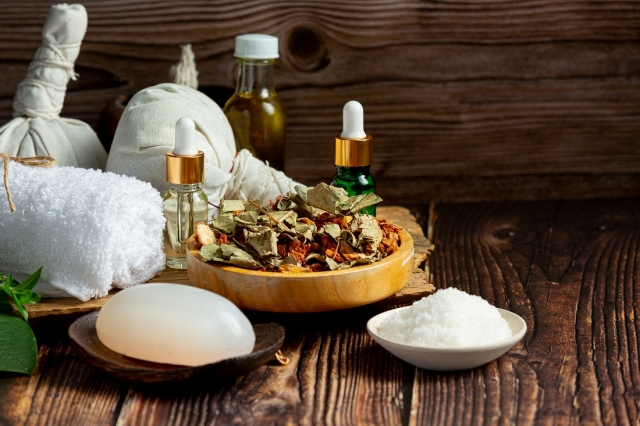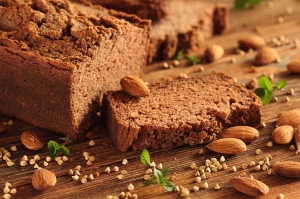In today's world, we are constantly bombarded with products that promise flawless skin. However, many of these products often contain harsh chemicals that can disrupt the skin's natural balance. This is where Ayurveda, the ancient Indian science of health and wellness, comes in. Ayurveda offers a holistic approach to skincare, focusing on natural ingredients and rituals that work in harmony with your skin's unique constitution.
Whether you have oily, dry, or combination skin, an Ayurvedic skincare routine is adaptable and gentle enough for all skin types. If you want to nurture your skin using age-old wisdom and plant-based ingredients, follow this comprehensive Ayurvedic skincare routine from morning to night.
The Basics of Ayurvedic Skin Care
Before diving into the morning and night routines, it's important to understand a few key principles of Ayurvedic Skin Care:
-
Dosha: Ayurveda identifies three primary doshas (Vata, Pitta, and Kapha), which correspond to different elements in nature (air, fire, water, earth). Understanding your dosha is the first step in selecting the right skincare products. Each dosha has specific characteristics that influence your skin type and needs.
-
Seasonal Variations: Ayurvedic practices also take the changing seasons into account. Your skin may require different care in summer vs. winter, so being mindful of these fluctuations is crucial for maintaining balance.
-
Natural Ingredients: Ayurvedic skincare emphasizes the use of herbal ingredients like turmeric, neem, aloe vera, sandalwood, and rose water. These ingredients are known for their ability to nurture and rejuvenate the skin without causing harm or irritation.
Now that we understand the basics, let's break down your Ayurvedic skin care routine!
Morning Ayurvedic Skin Care Routine
Start your day with a skin routine that refreshes, hydrates, and energizes your complexion.
1. Cleansing (Ubtan or Herbal Cleanser)
Cleansing is the first step in any skincare routine, and Ayurveda offers several gentle options. Instead of using harsh chemical-based cleansers, try an Ubtan, a traditional Ayurvedic paste made of ground herbs, spices, and natural ingredients like chickpea flour (besan), turmeric, and rose petals.
-
Vata skin (dry, sensitive): Use a gentle cleanser with hydrating ingredients like milk or coconut oil. Look for products containing turmeric and sandalwood to calm the skin.
-
Pitta skin (oily, acne-prone): Choose a cleanser with neem, tea tree, or aloe vera to balance the excess oil and soothe inflammation.
-
Kapha skin (combination, oily): Go for a cleanser with anti-bacterial properties like neem or tulsi (holy basil) to reduce oiliness without stripping the skin.
2. Toning (Rose Water or Herbal Toners)
Toning is essential to restore the skin's pH balance after cleansing. In Ayurveda, rose water is a popular toner due to its calming and hydrating properties. It helps to reduce redness and balance the skin's natural oils.
-
Vata skin: Look for toners with calming ingredients like lavender or rose that hydrate and soothe.
-
Pitta skin: Opt for a cooling toner with ingredients like aloe vera or cucumber to reduce redness and inflammation.
-
Kapha skin: Choose a toner with neem or citrus-based extracts to purify and refresh your skin.
3. Moisturizing (Herbal Oils or Creams)
Moisturizing is a crucial step in locking in hydration. Ayurveda recommends using natural oils and butters to keep your skin nourished.
-
Vata skin: Use oils like sesame oil or almond oil, which are rich and nourishing, ideal for dry and dehydrated skin.
-
Pitta skin: Light oils like coconut oil or sandalwood oil are cooling and can help balance the heat in your skin.
-
Kapha skin: Choose lightweight, non-greasy oils like jojoba oil or grapeseed oil to hydrate without clogging pores.
4. Sun Protection (Sunscreen with Natural Ingredients)
In Buy Ayurveda Products Online, the sun is seen as a powerful force that can either nourish or damage the skin, depending on how we approach it. Always protect your skin with a natural sunscreen that contains ingredients like zinc oxide, aloe vera, or turmeric to safeguard your skin from harmful UV rays.
Evening Ayurvedic Skin Care Routine
Your evening routine is essential for detoxifying and repairing the skin after a long day. This routine will help remove impurities, replenish hydration, and promote cell regeneration during sleep.
1. Double Cleansing (Oil Cleanse + Herbal Cleanser)
To ensure that your skin is thoroughly clean, Ayurveda recommends double cleansing. First, use an oil-based cleanser like castor oil or almond oil to remove makeup, dirt, and impurities. Then, follow with a gentle herbal cleanser suited to your skin type.
2. Exfoliation (Scrub or Ubtan)
Exfoliation is an important part of the Ayurvedic skin care ritual. However, Ayurveda emphasizes the importance of gentle exfoliation to avoid damaging the skin. You can use an Ubtan made with chickpea flour and turmeric or a mild herbal scrub with ingredients like sandalwood and rose petals.
-
Vata skin: Use a mild exfoliant to avoid irritation. Ingredients like oats or almonds are ideal for dry skin.
-
Pitta skin: Opt for a soothing scrub with cooling herbs like sandalwood or rose.
-
Kapha skin: Use a stronger exfoliant with ingredients like turmeric or neem to help clear excess oil and dead skin cells.
3. Toning (Herbal Toners)
Just like in the morning, toning at night helps to reset the skin's pH. Use a rose water toner or one infused with neroli or lavender to calm the skin after exfoliating.
4. Night Cream or Oil (Herbal Nourishing Oils)
At night, your skin's natural repair process is at its peak. Ayurvedic night creams or oils, such as sandalwood oil, rose oil, or turmeric-infused oil, can help your skin regenerate while you sleep. These oils are full of antioxidants, and anti-inflammatory properties that support the skin's healing process.
-
Vata skin: Heavier oils like sesame or almond oil work well overnight to deeply hydrate and nourish.
-
Pitta skin: Light oils like coconut or aloe vera gel can provide hydration without irritating your skin.
-
Kapha skin: Use lighter oils like jojoba or grapeseed oil to hydrate without causing congestion.
5. Face Masks (Weekly Ritual)
Incorporating a weekly face mask is an Ayurvedic practice that can benefit all skin types. Use a natural clay mask with ingredients like fuller's earth or a turmeric-honey mask to detoxify and brighten the skin.
Conclusion
Ayurveda offers a gentle, holistic approach to skincare that focuses on nurturing the skin's natural balance. By incorporating Ayurvedic rituals and natural ingredients into your morning and night skincare routines, you can promote healthy, glowing skin that's in harmony with your unique needs.
Whether you're dealing with dryness, excess oil, or combination skin, Ayurveda has something for everyone. The key is consistency and mindfulness in your skincare practices. So why not start today and embrace the beauty of Ayurveda for your skin's health and radiance?






